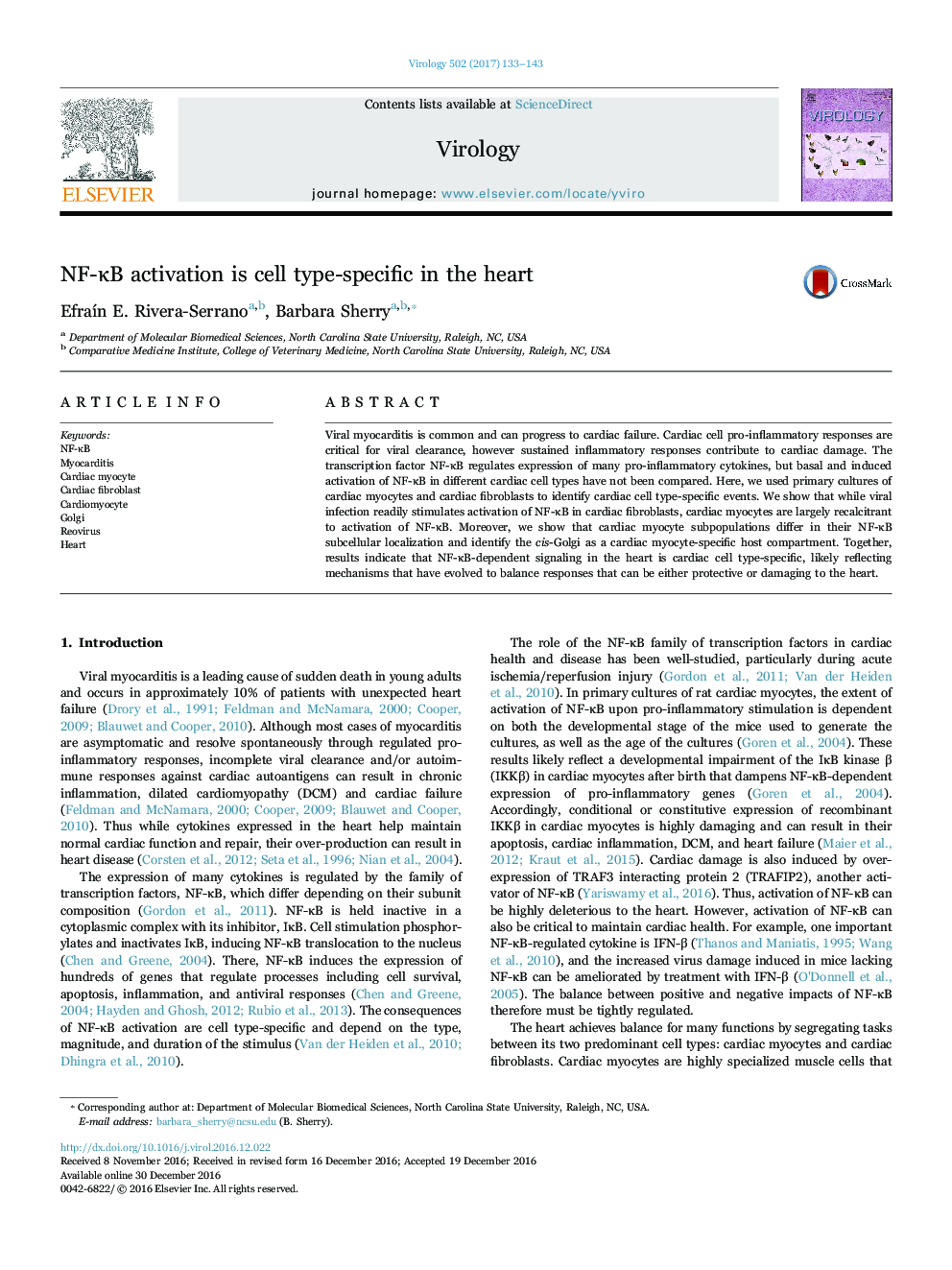| Article ID | Journal | Published Year | Pages | File Type |
|---|---|---|---|---|
| 5675166 | Virology | 2017 | 11 Pages |
â¢Insults to the heart induce both protective and damaging NF-κB-regulated responses.â¢Cardiac myocytes are resistant to NF-κB activation relative to cardiac fibroblasts.â¢NF-κB is predominantly in cis-Golgi bodies in cardiac myocytes but not fibroblasts.â¢Even in virus-infected cardiac myocytes, NF-κB is predominantly in cis-Golgi bodies.â¢Results demonstrate that cardiac NF-κB-dependent responses are cell type-specific.
Viral myocarditis is common and can progress to cardiac failure. Cardiac cell pro-inflammatory responses are critical for viral clearance, however sustained inflammatory responses contribute to cardiac damage. The transcription factor NF-κB regulates expression of many pro-inflammatory cytokines, but basal and induced activation of NF-κB in different cardiac cell types have not been compared. Here, we used primary cultures of cardiac myocytes and cardiac fibroblasts to identify cardiac cell type-specific events. We show that while viral infection readily stimulates activation of NF-κB in cardiac fibroblasts, cardiac myocytes are largely recalcitrant to activation of NF-κB. Moreover, we show that cardiac myocyte subpopulations differ in their NF-κB subcellular localization and identify the cis-Golgi as a cardiac myocyte-specific host compartment. Together, results indicate that NF-κB-dependent signaling in the heart is cardiac cell type-specific, likely reflecting mechanisms that have evolved to balance responses that can be either protective or damaging to the heart.
